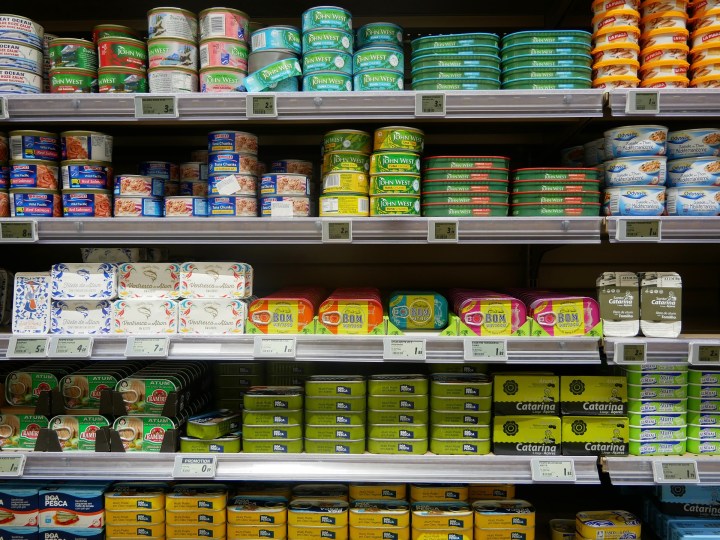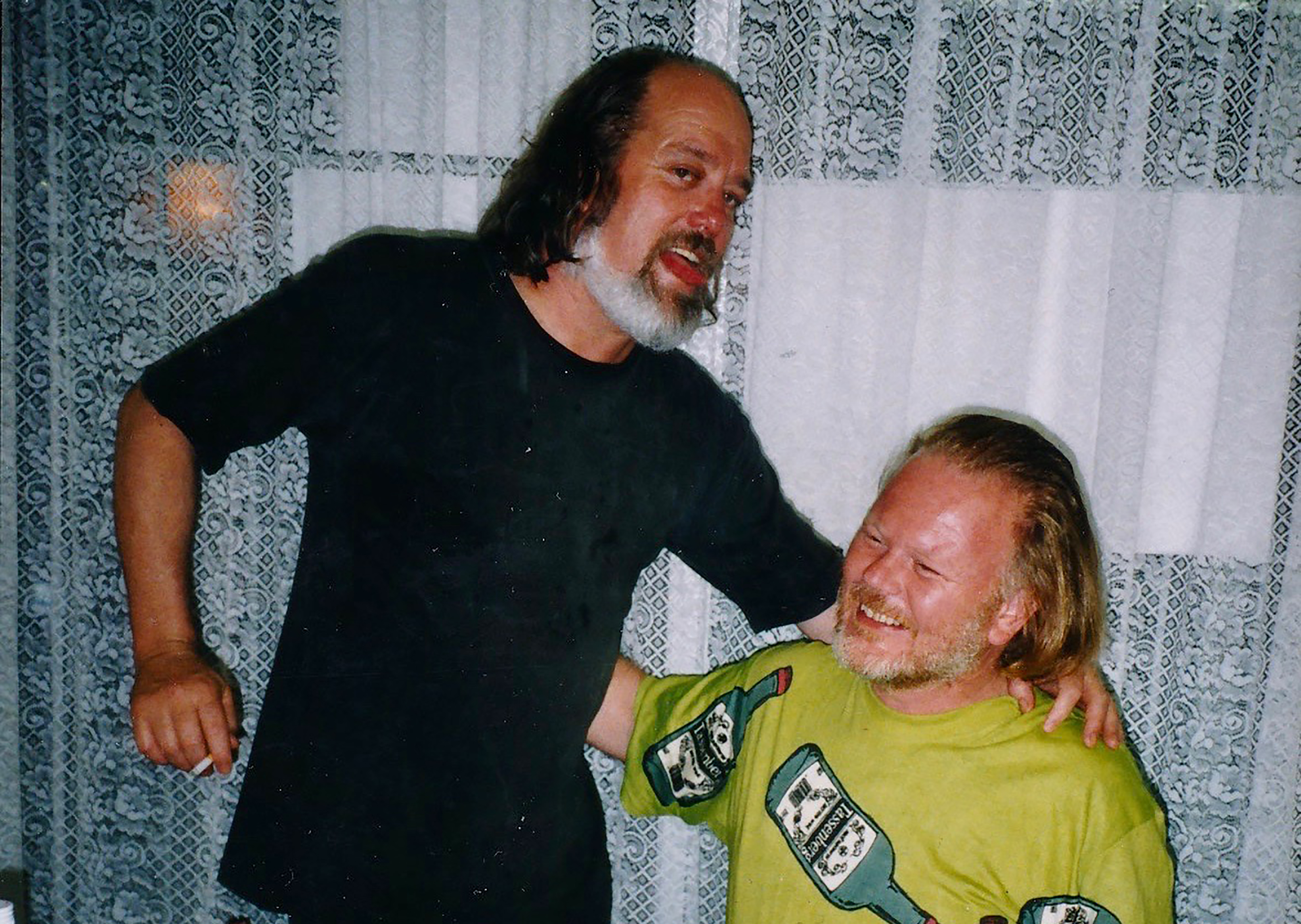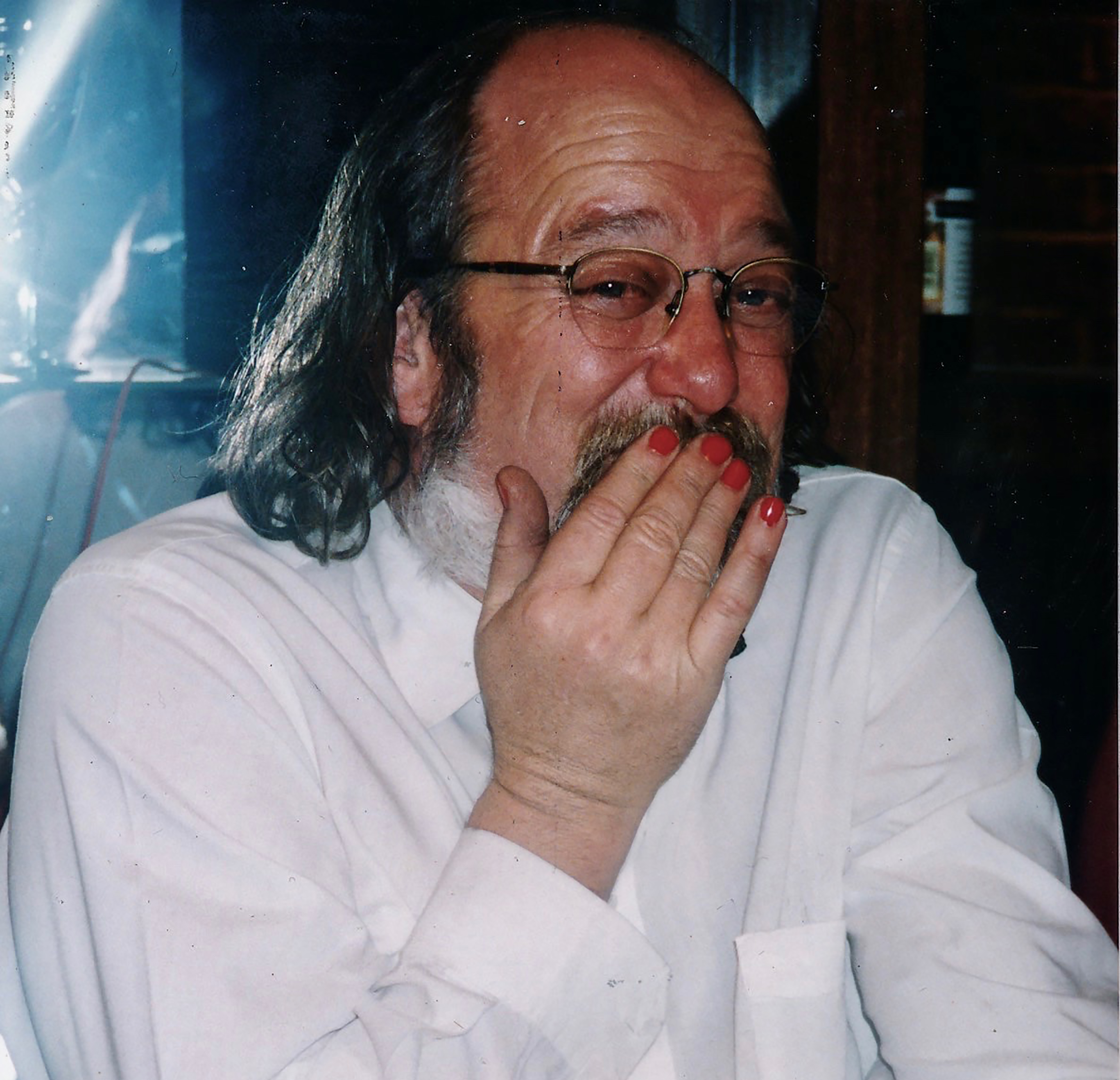CHICAGO BLUES
Kaalgat under the Kaftan: Braam Kruger and the missing lockdown ingredients

Moaning about missing ingredients during lockdown is not an excuse – find a substitute or be like artist and cook Braam Fisher, who never let a recipe stop his culinary creations. Braam could make magic with a can of tuna and he never lost his incredible sense of humour, so often the real missing ingredient when it comes to cooking.
Everything I read lately is about before lockdown or after lockdown. So why rock the boat? As I write this we’re halfway through our third week of lockdown here in Chicago. They’ve turned the convention centre downtown into a temporary hospital while our president and leader of the free world is still out there somewhere in the ether selling snake oil and stuffing his face with Big Macs. (There should be a competition for someone to come up with a barbecue sauce the colour of his tan.) And a whole bunch of Republican states are still in denial and refusing to lock down. But, this being the food section, I’m not going to get into that. I will stick to writing about food. Something “before” and “during”. Or in this case, during, then before.
We had a three-day grace period before the lockdown kicked in here in Illinois and all hell broke loose. Stuff just vanished off shelves within hours. Well, not everything. Mainly flour, rice, dried beans, pasta, tomato sauce, toilet paper. And weird things like chocolate sprinkles and paper cupcake holders. There were long queues at cash stations and petrol stations. Panic buying. My editor hates the term but then, I despise the term “foodie”, so I suppose we can trade off. The fact is, unlike SA, bottle stores and grocery stores are still open. Restaurants are open for delivery only. People can still jog or walk their dogs, as long as they keep their 1.5 metre distance. All non-essential shops are closed. Okay, so I can’t go out and get a manicure or a haircut, but then, I’ve never been too hot in the grooming department. But at least I can buy wine.
And your average American has never been too hot in the cooking department. So this got me thinking. Why buy up all the flour? Everybody is suddenly going to bake bread? Soak beans overnight and make delicious cassoulets? Strangely though, nobody was buying up any fresh fruit and vegetables. Or fresh meat, or chicken, for that matter. Which leads me to believe that most people get their “news” off Facebook or panicky websites.
Those empty shelf days just before and after our lockdown started did catch me off guard though. I’ve never been good at planning ahead. We just happened to have enough toilet paper to last at least six weeks, so no panic there, but still a mystery. I also wasn’t planning on baking any bread in the near future because bakeries are still open so I could live without the flour too. But the spectre of empty shelves suddenly brought home the fact that suddenly, overnight, reality has shifted. No more stopping off after work to pick up a few bottles of wine and something to cook for dinner every night. As a matter of fact, we don’t even own a freezer, because defrosting something overnight seemed like too much planning ahead. Things have normalised a little now, so flour and toilet paper are available again, but, to minimise unnecessary human contact, I am trying to plan ahead and shop no more than twice a week if I can.
In a way, this feeling of being under siege does remind me a little of growing up in SA during the apartheid years and the international boycott. Until I left home the boycott didn’t affect me much because I had no idea that good food existed. My mother hated cooking and, to be honest, she was probably the world’s worst cook. During my basic military training, I think I was the only one that didn’t complain about the food. Those army cooks were no match for my mother when it came to rendering any good ingredient inedible. My mother hadn’t met a vegetable that she couldn’t stick in her pressure cooker for a few hours and reduce to a grey mushy pulp. I remember coming home from school on my bicycle and as I turned the corner onto our street I would get that familiar smell of some unfortunate cabbage or beetroot being pressurised into submission.
Both my parents grew up in orphanages during the Twenties and Thirties Depression years so that’s how they thought food was supposed to be cooked. I never had that ouma with twinkly wise eyes and grey hair in a bun living somewhere on a farm lovingly making melktert and koeksisters. And don’t tell me it’s “koesister” unless you want to drive me completely crazy. (It’s a different thing – Food Ed, *eye roll*.) While we’re on the subject, another thing that drives me crazy is potjiekos, but I’ll save that for another time. Anyway, I have a suspicion that those oumas never existed and that the whole thing was a fantasy concocted by the Afrikaanse Taal Vereeniging to make kids like me feel bad.
Growing up, I never set foot in a fancy restaurant. My parents never entertained. There were no grown-up dinner parties. My dad’s idea of “fancy” was to take us to the drive-in and we would get hamburgers and chips and a milkshake on one of those trays that you hook onto your car door. And I was happy. I grew up in a bad food bubble. And then, in mid-high school, I went to the first “shopping centre” in Pretoria with a bunch of giggly school friends from the wrong side of town and at the steakhouse there tasted grilled mushrooms, onion rings and garlicky baked potatoes and the bubble burst. The problem was it never occurred to me that great cooking could also happen at home. That penny dropped a few years later when I met Braam Kruger, some time during 1975.

Not quite sober. With Braam at a Chinese restaurant, early ’90s. (Photo: Supplied)
Braam was in his final year studying painting at the Pretoria Technicon and lived in a huge old student house near the Union Buildings. Larger than life, flamboyant, loud, the ultimate charmer, even in those early years, Braam was already a force of nature. Somehow I ended up at one of his famous parties with my girlfriend at the time. I was fresh out of the military, awkward, shy, clueless about art, and it was always a mystery to me that he even paid attention to me, but we became friends.
Embarrassing, but I remember very little of the food he made at those early crazy dinner parties. Everybody was too drunk on the experience. That’s Braam in a nutshell, I think. Effortlessly blurring the boundaries between showmanship, spectacle, art and cooking. He painted gigantic nudes on every centimetre of bare wall. The kitchen spilled into the rest of the house. There were kitchen utensils and cookbooks mixed in with his paintbrushes and paints. Cookbooks on easels and brushes in the kitchen sink. And a huge cocktail bar. Braam was the alchemist behind the bar, always concocting new drinks, new recipes, and that is how I’ll always remember him. I’m convinced that he saw his kitchen as just another extension of his cocktail bar.
Just to keep things in perspective, when I blundered into this sensual explosion of art and cooking, I was still a very recent survivor of my mother’s cooking. And strange as it may seem, one of the biggest revelations to me was that the person in the kitchen was a man! And not only was he cooking but he was having a lot of fun doing it and it was part of his life. Not only was he having fun but Braam wasn’t a recipe kind of guy. Just wasn’t in his DNA. And I think that stuck with me more than anything.
One big obstacle to Braam’s freewheeling cooking style was the scarcity of ingredients because of the boycott. Kalamata or Nicoise olives were not to be found anywhere. Only bland canned South African olives. And they were not the same, by a long shot. Things have changed a lot since then but that was the reality 40 years ago. I remember not being able to find cumin anywhere. I eventually tracked some down in the Bo-Kaap. Most spices were sold as blends. Same with dried herbs. Hard to believe. Funnily enough, about seven years ago I couldn’t find coriander or cardamom anywhere in Pretoria.

Quintessential Braam. Mischievous and playful. (Photo: Supplied)
Something that Braam found hugely frustrating was the lack of Asian ingredients and sauces. He was fascinated by Asian, especially Japanese, cuisine. South Africa and Japan were having huge issues at the time and Japanese people were forbidden entry into SA. So, good luck finding any Japanese ingredients. This didn’t stop him though. If he couldn’t find the right ingredient, he figured out a substitute. And this meant knowledge.
I was never fooled by my old friend’s cavalier attitude towards following recipes. Braam was an obsessive cookbook reader and collector. He had a deep knowledge of cooking, so when he was playfully deconstructing a certain dish, he knew exactly where he was coming from. Bear in mind I’m talking way before the internet or food shows here. Decades before the cookbook publishing boom. No such thing as clicking a button and learning about Japanese cooking. Either you had to travel there (we were way too poor) or you had to track down printed sources, sometimes even in the anthropology departments of university libraries. And then you found a source, only to realise that none of the ingredients was available anyway.

Braam behind one of his many in-house cocktail bars. (Photo: Supplied)
Deprivation or the inconvenience of scarce ingredients never got in Braam’s way. He could make magic with a can of tuna. Cooking was part of his life. And he never lost his incredible sense of humour, so often the real missing ingredient when it comes to cooking. His painting, like his cooking, was always bursting with playfulness and crackling with humour.
I’m so used to people here throwing up their arms in despair and saying they can’t cook a dish because they’re missing an ingredient found only in a certain faraway region on a certain mountain top. Get over yourselves. If only you could have witnessed that twinkle in Braam’s eye when he donned his apron over his kaftan (kaalgat under the kaftan, of course) and strolled into his kitchen cocktail in hand. Even if there was only a can of tuna waiting on the cutting board.
This is not Braam’s life story. He opened a restaurant, had a TV show, all kinds of things, and I’m sure you can read about all that elsewhere. This is about being fortunate to have had a friend who taught me what cooking is really about. And I thank him for that.
Sadly, my friend Braam passed away in 2008 at the age of 58. DM/TGIFood



 Become an Insider
Become an Insider